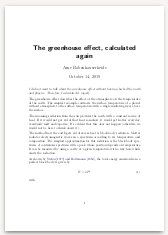The path towards decentralized moderation
The challenge with moderation in digital communication is that disrupting communication often scales better than individual blocking.
In Hyphanet / the original Freenet (where centralized moderation is simply no option) the answer was to propagate blocking between users in a transparent way. That way blocking disruptors scales better than disrupting. This enables individuals to actually take responsibility of protecting their communities from disruption.
What to protect against? See the Zen of Tolerance.
For more information see: The Freenet Web of Trust keeps communication friendly with actual anonymity.
If you want to try adding this to an existing tool, there are three steps:
- Check the current state in Hyphanet: OadSFfF-version1.2-non-print-edition.pdf
- Understand the optimizations needed so this scales to arbitrary size: deterministic-load-decentralized-spam-filter
- Integrate the generic wispwot service and extend it as needed: hg.sr.ht/~arnebab/wispwot
Also here’s some data of the real world communication structure within Hyphanet that should be useful if you want to test algorithms: The_Freenet_social_trust_graph_extracted_from_the_Web_of_Trust
(wispwot is built in a way that is suitable for federation, because it can work with a shared database that only has different entry points to get your personal view of the trust-graph. But it isn’t widely tested yet)
I hope this helps you tackle these issues, because global-scale moderation without centralized control is one of the huge tasks ahead of us — a task that was mostly ignored in the Clearnet (there were underpaid moderators to burn out after all) but tackled within the Freenet more than a decade ago.
I wrote this as a reply to an article about decentralized moderation.
